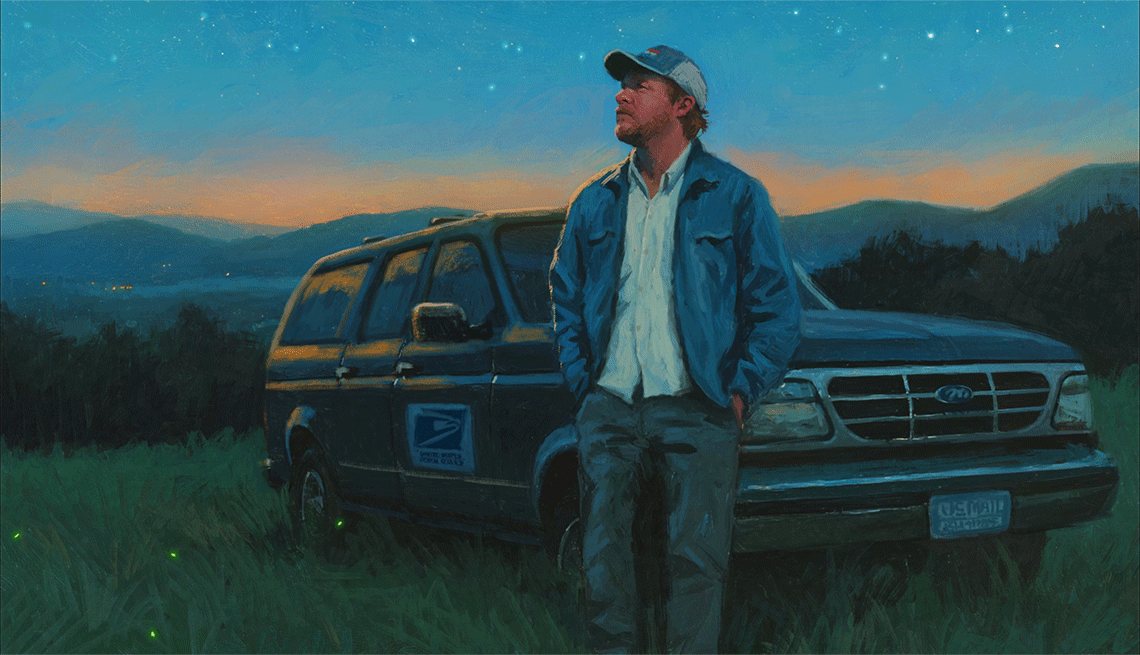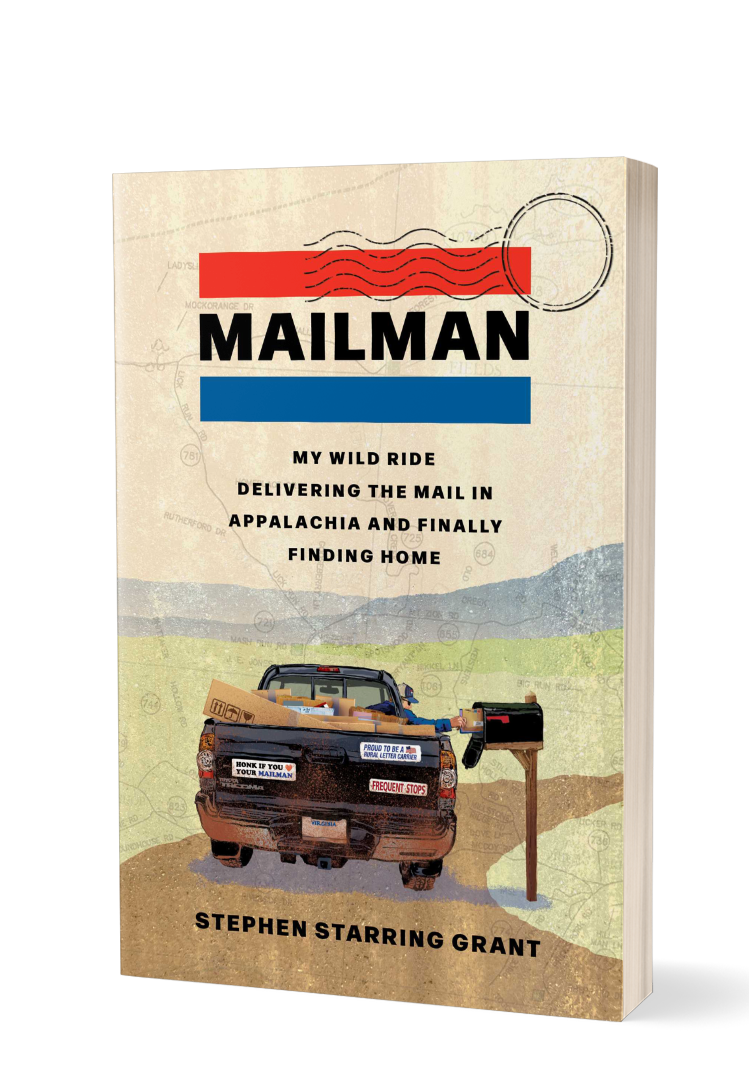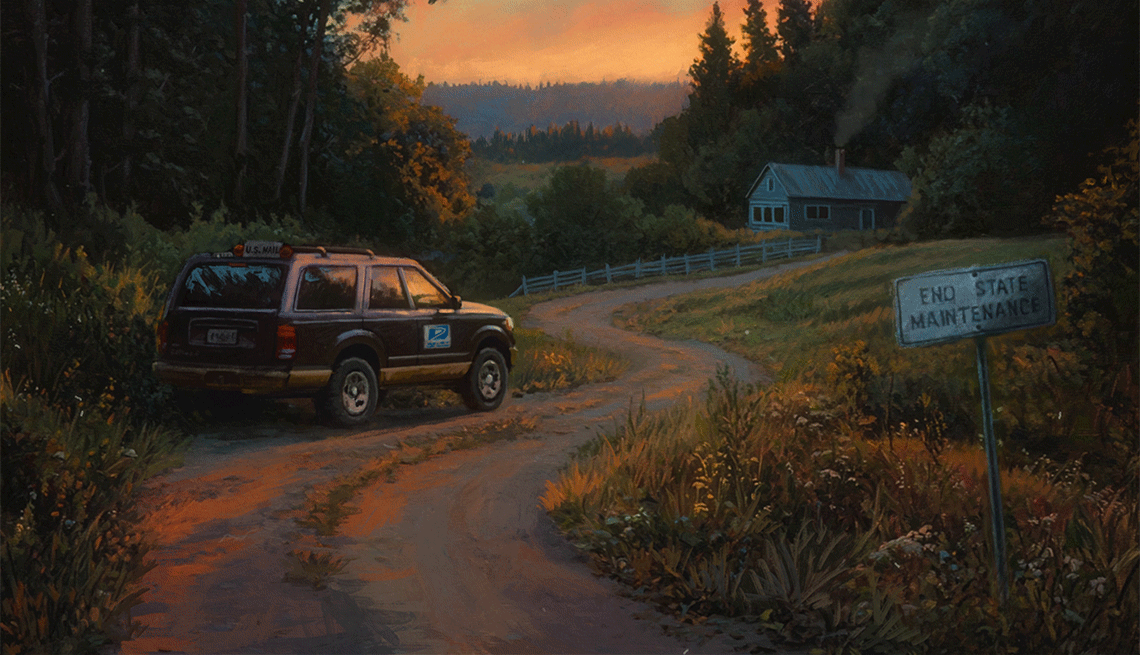AARP Hearing Center


In his new book Mailman: My Wild Ride Delivering the Mail in Appalachia and Finally Finding Home (July 8), Stephen Starring Grant, 55, describes his journey during the pandemic from an uber-successful marketing strategist to a U.S. mail carrier in rural Virginia. In the excerpt below, he explains how and why he made such a radical change — and how it radically changed him. (Read our interview with Grant for more on his book and his life.)
Mailman: My Wild Ride Delivering the Mail in Appalachia and Finally Finding Home
The worst-kept secret in corporate America is that marketing works. I had been a successful, highly paid strategist for some of the biggest companies in the world, helping the glass-tower crowd understand how regular people make the wheels on the bus go round and round. But marketing is notorious for being the canary in the coal mine of corporate spending. And now, my latest gig was abruptly ended due to the onset of COVID-19.
I was a husband and a father of two teenage girls, and everybody in our house up on Brush Mountain in Blacksburg, Virginia, was counting on me to keep them in the upper middle class. Getting a new marketing job was going to be a near impossibility for the foreseeable future. It was certainly not going to happen before my health insurance ran out in a couple of weeks.


Which was a problem. Because I had cancer.
I had only known about the cancer for a couple of months. My father had survived prostate cancer, as had his brother, my uncle Rich. So I wasn’t too worried, honestly. At least that was the story I was telling myself. My urologist told me the malignancy was contained inside the prostate. The tissues uncovered in the biopsy were submillimetric, thus too small for the MRI to detect. My cancer was as benign as cancer gets. But what had seemed manageable — treatable — now loomed as an existential issue. I was about to become one of the undoctored in America while I knowingly carried a disease that could kill me.
I needed money, so I took a job carrying the mail in Blacksburg, the town — and the surrounding county — where I had grown up, departed from for the bright lights, and returned to a few years earlier. And I fell back in love with America during that year. I feared for her and prayed for her, even though before I started carrying the mail, I did not spend much time in prayer. But here in midlife in my hometown, I found myself working a different kind of job, and I became a different kind of person.
I was the guy with the goods, and I carried the candy and the respirators and the dog food and the lube and the heirloom tomato seeds, the hot rod magazines, the handwritten pleas from incarcerated uncles, the scientific journals, tabloid-size book reviews, model train sets, illustrated children’s Bibles, the hand-painted postcards from artistic cousins and estranged girlfriends. The story I told myself was this: I had joined a brotherhood that stretches back to Benjamin Franklin, to men on horseback and in biplanes. I had become a flag-wearing, sworn federal officer in a position of trust, the duly appointed agent of the United States government in a time of national crisis, the dedicated and beloved civil servant of the people.
I was the mailman.
I’m hauling ass up the hollow, down the dry dirt road past the sign that reads END STATE MAINTENANCE, driving a 2001 Ford Explorer from the right-hand seat. My left leg is stretched across space where the center console had been torn out to allow easy access to the pedals, left arm stretched across to the steering wheel with its sloppy linkage, the leaking power-steering fluid an industrial aromatherapy. Here, on the northern side of the draw, is a land of permanent shade. All the trees are scrub pine, the road narrow enough that I can reach out and feel my fingertips being whipped by the needles as I drive by.
This isn’t some purpose-built vehicle. I’m driving a plain Jane, bone-stock, factory-basic, left-hand-drive car. But for slinging mail on back roads, it is hard to beat the Explorer. “Ford Tough,” this rusty beast has survived long beyond the planned obsolescence built into it by the engineers in Detroit because this thing has got a soul, man — Made-in-America magic that is still pulsing through it 19 hard years after it rolled off the assembly line in Louisville, Kentucky.
I’m driving as fast as the old crate will go, but I am behind schedule and this route is almost 60 miles long. This is where Google Girl says I need to be, headed toward the destination of the next parcel. But I’m lost. Not spatially lost. Geographically, I know exactly where I am. I’m where I grew up, in the hardwood, sedimentary Blue Ridge Mountains, the heart of the Appalachians. What I’m feeling is a spiritual disorientation, lost in the sense that I don’t know what I’m doing, lost in confronting the reality of being back in my hometown at 50 years of age, delivering the mail.


When you’re delivering the mail as a functionary of the U.S. government during a pandemic, the countryside and the nation itself become something alien and distant.
Down here at the level of individual mailboxes, time works differently. What time is it? What day is it? It’s parcel time, the only kind of time that matters anymore, and I’ve got a delivery to make, one that I’ve been waiting on since I left the post office that morning.








































































You Might Also Like
AARP’s Favorite 2025 Books (So Far)
AARP’s books editor shares her top 10 reads
Stephen King’s ‘Never Flinch’ Is a Gripping Detective Tale
The master of the macabre has done it again in his latest novel
Book Excerpt: Chef José Andrés
Visiting Haiti, the chef watched and learned — then cooked